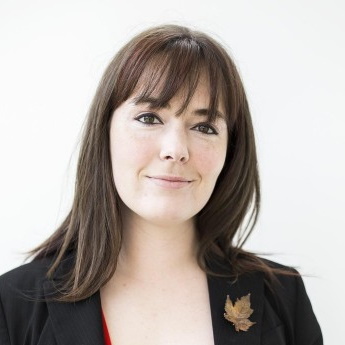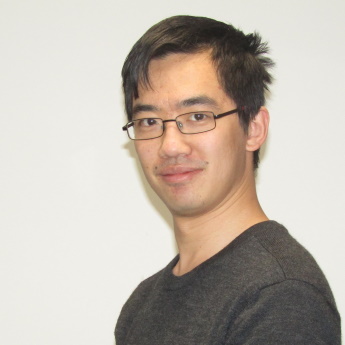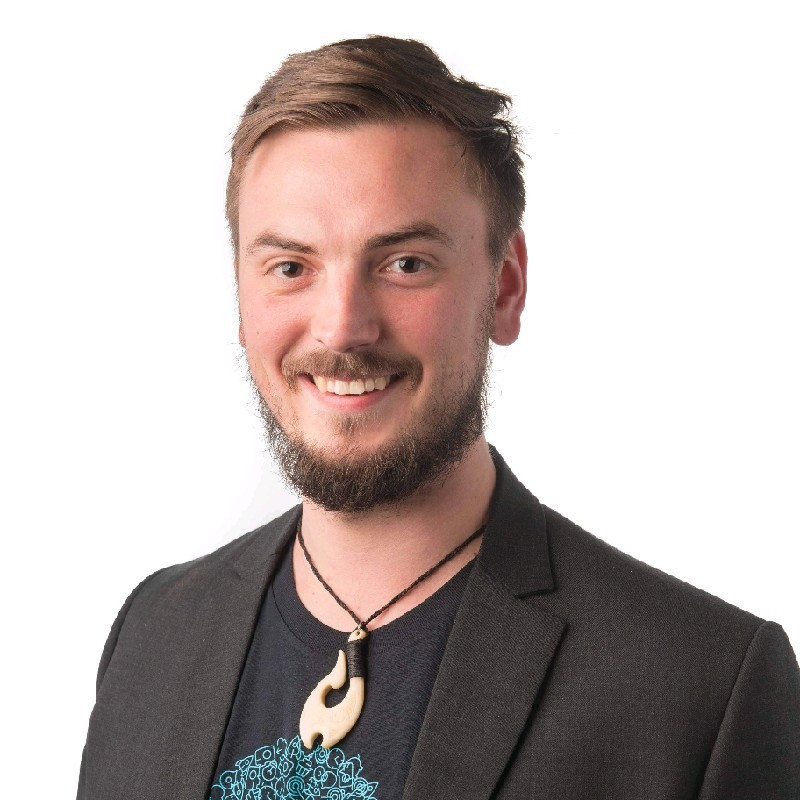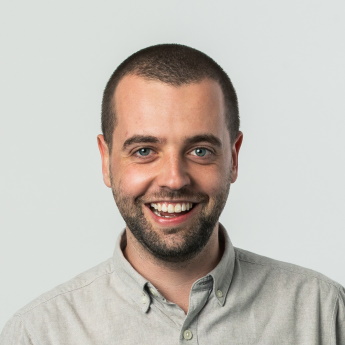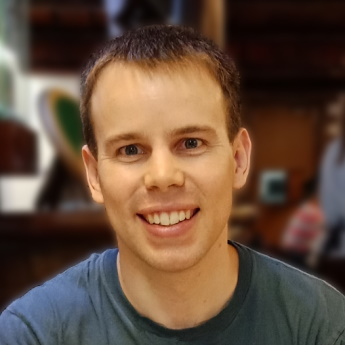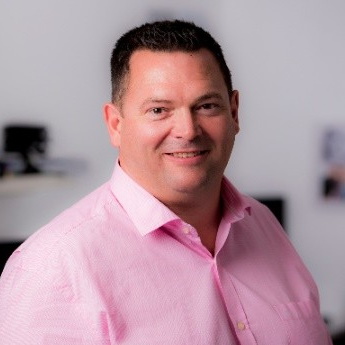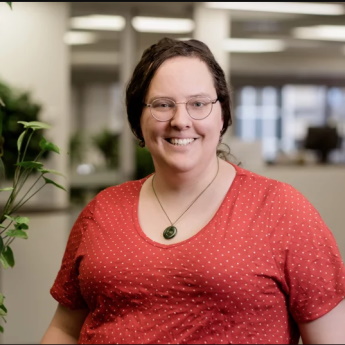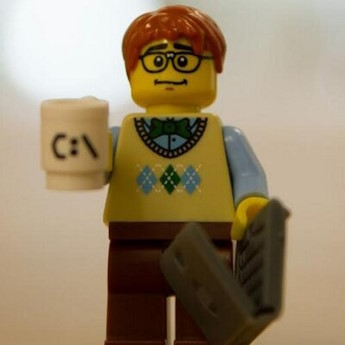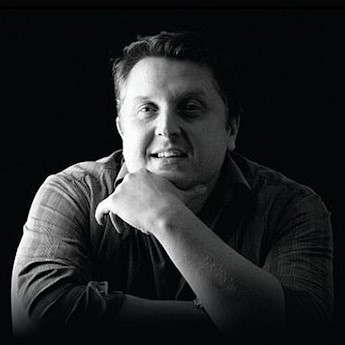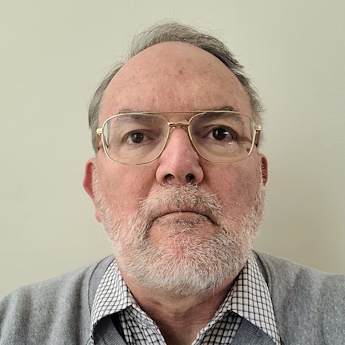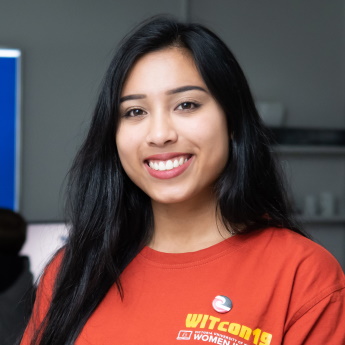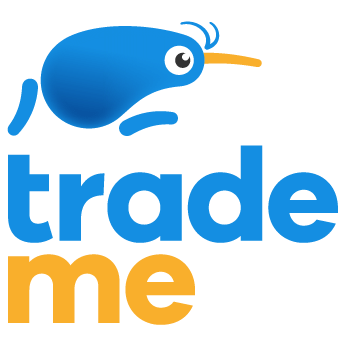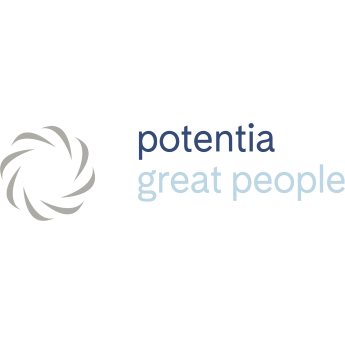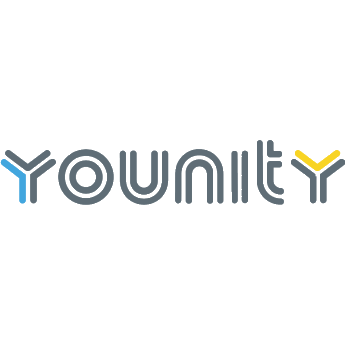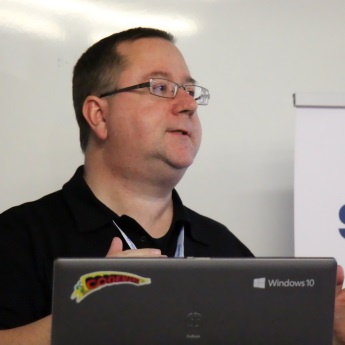Tracks
As we've done every year,
we're breaking Code Camp into different subject tracks
to help delegates find the most interesting sessions.
For 2020 we've chosen these tracks.
Code On Screen
Show us the code! Tell us why you think it's important, and what we need to know.
Cool & Fun
If it's tech you think is cool (or fascinating or surprising) then we probably will too.
Careers
What does it take to build a rewarding career in tech?
Collaboration
How do we work together to build great things?
Agenda
9:00 am
Welcome & Administrivia
Keynote
9:15 am
Session One
10:15 am
T.B.A.
11:00 am
Morning Tea
Session Two
11:30 am
T.B.A.
Session Three
12:30 pm
T.B.A.
1:15 pm
Lunch
Session Four
2:00 pm
T.B.A.
Session Five
3:00 pm
T.B.A.
Locknote
4:00 pm
4:45 pm
Thanks & Administrivia
Speakers
Here are our awesome volunteers who contributed their time and skills to speak at Code Camp to make it a success.
Keynote
9:15 am
Loving unlovable codebases
Opening Keynote
Xero - Storm
No matter where you work, what industry you're in or what language you code in, we all have one. The elephant in the room. You know, that thing. The code noone wants to touch. It might use legacy frameworks, it might be a monolith, it might have no testing and it might grow mould. But it's still alive and running in production, for insert key business process here. So what alternative is there to ignoring, groaning or suffering through it? Is there one? Can you begin to make a difference? I not only think you can, but can prove it.
Hannah Gray
Principal Engineer, Xero
A back end .NET developer, turned manager, turned developer who has been around the block a few times, I'm usually found deep in the intersection of people and process meets technology. I've been at Xero longer than most of the furniture (not kidding), and love to talk junior talent, sci-fi and how to make things better one small step at a time. Currently leading a small team of possibly deluded developers on a crusade to uplift engineering capacity across the organisation within our legacy codebases.
Session One
10:15 am
Startup Surgery
Careers
Breakout Session
Xero - BrickFielder
You've got an idea for the next Decacorn business - something which will make Microsoft look like a minnow and Google like a guppy - and you want to know how to bring it to life. Join three of Wellington's best product thinkers and startup gurus and put your questions to them. How to go about finding product/market fit, defining the real MVP, how to get from the back of a napkin to AWS Cloudfront, and more.
Owen Evans
Owen has been a manager and leader of people in the Wellington tech scene for a long time (some might say too long). He's been at places like Xero and had a startup called Hoist, he's also dabbled in Virtual Reality and Augmented Reality as director of engineering at 8i. Most recently he's been a consultant to many startups around New Zealand.
Ten Years of Application Security
Cool & Fun
Breakout Session
Trade Me - Cafe
They say history is a perpetual cycle of technological, procedural, and cultural shifts; In some ways, the world of application security is no different. In this talk I intend to cover the changes in the web application security (AppSec) space over the past ten years. Hopefully there will be some practical tips for growing your own AppSec program.
No prior security knowledge required.
Felix Shi
Senior Security Architect
Felix donned many different hats and worked for a handful of startups and corporates. He currently works as a Sr. Security Architect at Xero, and raises axolotls in his spare time.
Do You Want To Build A Build Tool?
Code On Screen
Breakout Session
Xero - Storm
Tooling for code generation, transformation and interrogation has improved in leaps and bounds over the last few years! We now have things like Webpack, Prettier and ESLint, that can manipulate code in powerful ways, speed up development, and provide insight into how our applications work. But how exactly do they work? Some of the ideas that make these kinds of tools tick are rather tricky, and not the kinds of thing you come across in day-to-day web development... This talk will be Code Tooling 101, and act as an introduction to Abstract Syntax Trees, and all the weird and wonderful things you can do with them. We will start together at the TypeScript compiler APIs and learn all about code interrogation, code transformation and code modification. We will then see how we can apply those same ideas to build our own tools, or contribute to the amazing tools that the community has built! By the end of the talk, attendants should have an idea of how ASTs work, how they are used in code tooling, and how they can be used to manipulate and interrogate code at a structural level! This will open up the doors to creating custom schematics, lint rules and codemods, and hopefully encourage everyone to have a go at contributing to open-source tooling projects!
Craig Spence
Craig is a Software Engineer from New Zealand, working at Spotify in Stockholm. He loves building cool things that help teams build cool things! He also loves punk rock, Disney's Frozen, and his cat Cosy.
Session Two
11:30 am
The nuances of giving feedback
Collaboration
Breakout Session
Xero - BrickFielder
Giving and receiving feedback is confronting, awkward and stressful – it’s hard. When my team shared their desire for better feedback, I made it my mission to understand what that meant. I embarked on a journey of discovery, the learnings of which I’d like to share with you in this session. No matter your role, I hope you’ll leave with a clearer picture of feedback and how to harness it for good.
Stuart Whitehead
Technical Delivery Director, Springload
In my role as an engineering manager at Springload, it's my role to oversee client projects and to support the members of our technology team. Technology is my profession and people are my passion.
AWS explained with food
Code On Screen
Breakout Session
Trade Me - Cafe
I will be walking through the structure of how a fast food restaurant operates then using this to draw parallels to how a software company can use AWS. From a fast-food restaurant's ingredient storage, to the communication methods they coordinate themselves with, to where each restaurant branch is, this food catering analogy will be mapped to many common AWS services to reinforce your understanding of AWS.
Josh Espinas
Having recently completed my AWS Solutions Architect Associate exam is what inspired me to write this talk. The exam is largely based on your breadth of knowledge across many different AWS services rather than a depth of knowledge to be able to use them. So thinking about all these services in terms of this food catering analogy really helped. I enjoy trying to teach and communicate technology ideas to anyone with little background in the topic. Outside of work as a devOps engineer at Xero, I follow and play music, I follow and play basketball, and I follow and play video and board games.
Kids, Coding and You
Cool & Fun
Breakout Session
Xero - Storm
How to get involved Let me show you how you can get involved with children, teaching them about code and tech. Whether it's one child or class, a weekly session or one-off, we'll cover everything you need to know to get started, run sessions kids will want to come back to and more.
Ben Chartrand
I'm the CTO at Spotlight Reporting. I've worked in a variety of orgs such as Wipster, BNZ, Timely and more - in both hands on and leadership roles.
Session Three
12:30 pm
Career Surgery
Careers
Breakout Session
Xero - BrickFielder
Whether you're a new entrant to the tech sector looking to set yourself apart from the crowd and score your first gig in a tough post-covid market, or an industry veteran seeking to put polish on your CV and nail the interview process with one of the great tech firms around town, one of Wellington's recruitment legends from our sponsor Younity is here to answer your questions. He's worked with the best in town because he is the best in town and this is a chance to pick up some invaluable information.
Richard Vaughan
TBC
High-perf APIs w/gRPC
Code On Screen
Breakout Session
Trade Me - Cafe
gRPC is a modern high performance RPC (Remote Procedure Call) framework that can run in any environment. gRPC is based on HTTP/2, Protocol Buffers and other modern standards-based technologies. Together with excellent tooling, it helps you create high throughput, low latency, real-time services.In this talk I'll introduce gRPC and compare it with familiar REST-based JSON APIs. You will see how to create gRPC services on ASP.NET Core, and how to integrate gRPC with dependency injection, logging, and authentication. Learn how to use gRPC to create lightning fast microservices and frontend applications.
James Newton-King
Principal Software Engineer, Microsoft
James Newton-King is a Principal Software Engineer on the ASP.NET team at Microsoft, where he builds server frameworks like MVC, SignalR and gRPC. James also created Json.NET, one of .NET's most popular software libraries.
Shin, Zen, Bi. Truth, Zen, and Beauty.
Careers
Breakout Session
Xero - Storm
As a Japanese archery practitioner and Front End Developer, I find a lot of shared principles between the two practices. This will be a brief intro/demonstration of Kyudo, and how I've adapted it into my own work.
Prae Songprasit
UI Front End Developer @ Xero
I started Kyudo and Front End Development about 7 years ago. Both practice's demand for detail and respect for the audience had significant impact on who I am today. I contribute back by being in NZ Kyudo Federation committee, and co-organise Wellington Web Accessibility Meetup.
Session Four
2:00 pm
Imposter Syndrome
Careers
Xero - BrickFielder
I’ll explore what Imposter syndrome is and talk about my personal experiences of not feeling good enough. Mostly, I’ll focus on describing a variety of tools, tips and tricks to help the audience build their self-confidence and self-compassion toolkit.
Rachel Collingridge
Totara Learning
A classically trained musician, Rachel got into software development by mistake, and has been enjoying it too much to switch back. After sixteen years of shipping code commercially she's spent nearly a decade in technology leadership. Her working style is based on servant leadership, extreme collaboration, making a positive difference and always having a laugh while doing it.
Colourful Cryptography
Code On Screen
Trade Me - Cafe
Cryptography can be a daunting thing, with all sorts of buzzwords and maths. People throw around terms like encrypted, hashed, private key, public key, nonce, and blockchain. What?Turns out it's really all about information, and the maths is a detail.
In this session I'll give you the overview of what it all is, how it all fits tother and when to use what, how to use it and why all those things. EIL5, not quite - but EIL10 - YES!
Kate Pearce
Head of Security, Trade Me
Kate Pearce is Head of Security at Trade Me (which you may have heard of). Previously she was a professional computer hacker (pentester) and has broken into everything from cars, to cellphone networks, to websites (which you may also have heard of - but she can't name!).
Separation of Concerns
Cool & Fun
Breakout Session
Xero - Storm
The principle of separation of concerns advises us to organise programs into distinct parts according to what they do or represent. It’s a principle that sounds great but can be maddeningly hard to apply, both practically and in terms of identifying just what the concerns are that need to be separated. In this talk, I’ll try to pick apart the aspirational phrase separation of concerns into some concrete principles, tactics and techniques. We’ll see real world examples of how they’ve helped keep (parts of) my code sane, how to recognise and apply them, and, just as importantly, when to stop.
Ivan Towlson
Co-founder, Fermyon
Ivan has been knocking around the software scene since the days of Turbo Basic, and has lately found himself focusing on cloud native tools as part of Microsoft's Deis Labs group. He is now back in the startup world, helping to found Fermyon and using Rust and WebAssembly to build the next wave of cloud computing.
Session Five
3:00 pm
Make the most of your internship
Careers
Breakout Session
Xero - BrickFielder
Are you interested in technologies and want to be part of it? Working in tech is not the same as you studied, it’s not just about writing a piece of code, or submitting a paper. It takes a lot more to become a capable developer. The summer of tech internship provides a great opportunity to bridge the gap between the workplace requirements and the student experience.In this talk, we will talk about Cliff’s experience of being selected for a summer of tech internship role and how he made it his own experience. How if you’ve been selected, what you can do to develop an individual development plan that helps you explore the role, build the connections, and get the feedback.
Cliff Ahleong
Intern Test Engineer at ANZ
Cliff is an intern for ANZ from the summer of tech program 2019. He has 4 years' experience in Kiwibank payments team and looked after the daily transactions. The internship journey, brings him from the bank back office to the digital world. He's all about making website memorable with excellent user experience, bringing his passion and experience to the internet banking team, and learning everything about what it takes to be a great developer.
Jackie Wang
Senior Test Engineer at ANZ
Jackie is a senior test engineer at ANZ. She is interested in how engineering practice and product management shapes the technical world these days. She is also keen to promote the agile testing practices and explore the possible career path for testers. In her spare time, she's learning how to grow vegetables and travel as much as she can.
10 years of security breaches
Cool & Fun
Breakout Session
Trade Me - Cafe
Andy and Kirk look back at the last decade of security misfortune, looking at the hacks that shocked us and asking: What have we learnt?
Since 2009, Andy and Kirk have enjoyed recreating security incidents for audiences at tech conferences: from scenes in Mr Robot
and blockbuster movies, to demonstrating how ransomware works. In this talk we'll switch our focus to the Real World(tm), discuss how sophisticated attackers are (or aren't!) and help us understand how to defend against these attacks.
Kirk Jackson
Kirk Security Researcher at RedShield, where he helps to protect customer websites from attack. He organises the Wellington OWASP Chapter, and has organised and spoken at other conferences, usually on the themes of developer security and defence.
Andy Prow
Andy is the CEO and co-founder of RedShield, with staff and customers in New Zealand, Australia, USA and UK. On the tech side he's a seasoned software developer, pen-tester and security researcher. On the business side Andy won the EY NZ Entrepreneur of the Year 2017 (Services Category), and RedShield won the NZ HiTech Awards 2017 for more Innovative Software Product and Most Innovative Service.
Programming in the "dark" ages
Cool & Fun
Breakout Session
Xero - Storm
Computers have been around since the 1940's and so has programming in one form or another. But what was it like to be a programmer before the Internet, before the PC, before stackoverflow and before the gaming graphic card? Let's take the Tardis and find out.
Rory Braybrook
Microsoft Identity Architect
I've presented at the Code Camp before. I'm a Microsoft MVP interested in the history of computing.
Locknote
4:00 pm
Walking the walk
Closing Locknote
Xero - Storm
Diversity and inclusion have become buzzwords in the tech industry - there’s a lot of talk, and not a whole lot of action. But for myself, and many other people who study and work in tech whilst also representing various marginalised communities, we need action to make this industry a place where we can thrive, and have the space to effectively create and contribute. I'll discuss why diversity and inclusion are important, and what action you can take today to make tech more welcoming and safe for everyone, especially in Aotearoa.
Aleisha Amohia
Koha Developer, Catalyst IT
Aleisha Amohia (Te Ātihaunui-a-Papārangi) (she/her) is a passionate young advocate for diversity and inclusion in all spaces, but especially the technology industry. Born and raised in Te Whanganui-a-Tara, Aleisha gets her energy from her supportive whānau and friends, and is driven by the idea of a future where STEM industries care less about innovation for profit, and more about ethical innovation for people and planet.
Sponsors
Thanks to our awesome sponsors -
without their support since 2016 we
wouldn't be able to put together such awesome events.
Major Sponsors
We thank these major sponsors for their support of Code Camp Wellington 2020
Other Sponsors
We thank these sponsors for their support of Code Camp Wellington 2020
Our Amazing Team
These are the volunteers responsible for bringing everything together
to make Code Camp Wellington into an event to remember.
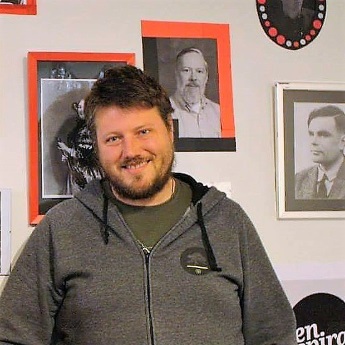
Ben Amor
Returning Organiser
Ben has worked with of the biggest names in Wellington, including alumni of both Xero and Trade Me. To widespread astonishment, including their own, they're all willing to work with him again. He brings a great sense of fun, a quirky sense of humour and a sterling can do attitude to everything he does and we think it's just splendid that he's joined us for another Wellington Code Camp.
Bevan Arps
Founding Organiser
Bevan is the driving force behind Code Camp Wellington, and formerly of the Wellington .NET user group. He's an alumnus speaker of TechEd and Code Camps in Auckland, Wellington, and Christchurch. Over his long and storied development career he's written code you can bank on as well as some that's right on the button. We can only hope he's not going soft as Code Camp moves into another year and we're delighted that he's brought his vision and zeal to the committee for another round.

Jevon Wright
Organiser
Architect, leader, entrepreneur, crypto-currency expert, drummer, and founder, Jevon wears more tech hats than a professional tech hat wearer. She's worked with the top firms in Wellington across multiple stacks and builds teams as well as she builds software. Her own venture runs so sweetly that I believe she's forgotten where it's hosted, it hasn't needed looking at for so long. She's working with Xero at the moment so I assume the stock price will double again shortly. Absolute legend 17/10.

Nanda Hibatullah
Organiser
Nanda has made waves like a good humoured bowling ball as he has leapt enthusiastically into the Wellington Tech lake. He brings to the committee a vast supply of energy, irrepressible optimism, and boundless good cheer. He currently works at Xero where he's building great software and glueing teams together.
Rachel Collingridge
Organiser
A two time code camp speaker with an unparalleled feedback record (source: I asked some people. They said they liked her talks) Rachel brings a wealth of knowledge, her network of, ooh, everyone in Wellington, and the ability to run slowly for a very long time. A unique blend of cranking developer and inspiring leader, she currently works at Xero as Head of Engineering.
